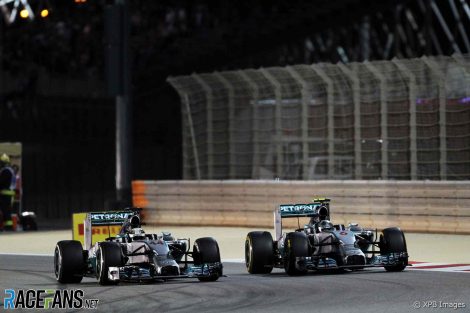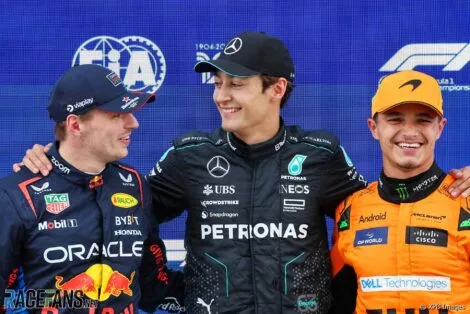One of the key aims of the ground effect regulations Formula 1 introduced in 2022 was to increase the competition between teams.
Closing up the gap between the top and the bottom of the grid is a goal with obvious benefits to ‘the show’. A closer field means more intense fighting between teams, making the results of each race weekend less predictable, meaning more intrigue for spectators in the grandstands and the fans watching on TV.
But two years into the current ground effect era, the competition was a major talking point in the sport for all the wrong reasons. Over 44 races across 2022 and 2023, one team had won 38 of them – with just a single driver accounting for 34 of those victories.
A third of the way into the third year under these rules, that dynamic is finally beginning to change. The last three grands prix saw three different teams and drivers win. Red Bull, Ferrari and McLaren arrived in Canada looking like candidates for victory – and then George Russell put his Mercedes on pole position.
For a long while now, one of the most popular words among the sport’s team principals has been “convergence” – the idea that the performance levels between the ten teams will naturally reduce over time with a stable rules set.
“It’s inevitable,” said Red Bull’s Christian Horner in Monaco. “We’re in year three of these regulations, and it’s inevitable that you’re going to get convergence.”
Yet just when Formula 1 appears to be at its most competitive at the front of the field since these current rules were first introduced, the governing body has turned attentions to 2026 – the year of the next major technical regulations revolution. If recent history is to go by, the field could be set to lose that parity not long after appearing to achieve it.
Advert | Become a RaceFans supporter and
2014
The 2013 came during Red Bull’s original run of dominance with Sebastian Vettel’s four consecutive world championship titles. But it was also very much a year of transition, with all teams firmly focused on preparing for the arrival of revolutionary 1.6-litre V6 turbo hybrid power units from the following season.

Vettel cruised to the championship that season with 13 wins out of 19 races – including a then-record run of nine consecutive victories to finish the championship. Four teams enjoyed a grand prix…
Click Here to Read the Full Original Article at RaceFans…

